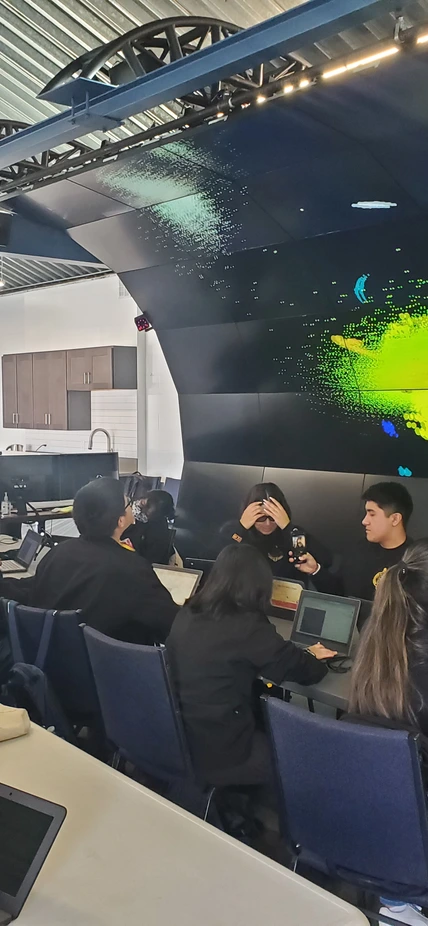Culture & Community Mini-Grants

Program Overview:
Carnegie Science is committed to community building and fostering a welcoming culture for all within our organization, as well as via our outreach efforts. We invite faculty, staff, postdocs, and all employees to propose initiatives that will advance these goals, including:
- Community Dialogues: Initiating and facilitating conversations that build community for all.
- Creative Expressions: Supporting creative projects such as art installations, performance art, visual arts, and murals that convey themes and messages that make science accessible.
- Educational Outreach: Engaging with local communities through initiatives targeting elementary schools, middle schools, high schools, or community colleges.
Eligibility: Grants are available to individuals or small teams of employees.
Ineligible:
- Stipends and Wages: Grant funds cannot be used to pay salaries or stipends to individuals involved in the project.
- Routine Operating Costs: Expenses related to the day-to-day operation of departments or programs, such as office supplies, utility bills, and administrative overhead, are not eligible for funding.
- Non-culture-building Initiatives: Projects that do not directly align with community building objectives within Carnegie Science or our outreach initiatives are not eligible.
- Projects Beyond FY Closure: Initiatives that extend beyond the fiscal year (FY) deadline specified in the grant guidelines are ineligible for funding.
- Capital Investments: Funding for the acquisition of capital assets, such as buildings, land, or major equipment purchases, is not available through these grants.
- Travel Costs Unrelated to Community-building: Travel expenses unrelated to community and culture-building project activities, such as personal travel or unrelated conference attendance, are not eligible for reimbursement.
- Projects Lacking Clear Objectives: Proposals that do not clearly articulate how the project contributes to our culture and community-building goals may be deemed ineligible.
- Duplicate Funding: Projects for which the applicant has already secured full funding from other sources may not receive duplicate funding through Carnegie Science mini-grants.
These exclusions are in place to ensure that grant funds are dedicated to initiatives that will create a welcoming environment within Carnegie Science that extends to our broader communities via our outreach efforts.
Guidelines: Projects supported by these grants may span a variety of durations, from single events to year-long endeavors. All grants must conclude before the close of the fiscal year (FY) June 30th. Grant funds are designated exclusively for expenses directly associated with community and culture-building projects. While stipends and wages are not eligible for funding, grants may cover conference attendance costs. Grant proposals should explicitly mention any other funding sources sought or secured, both internal and external.
The primary criteria for a successful grant application are that the funds contribute to furthering Carnegie's culture-building goals and that the proposed project has a tangible and positive impact. In cases where multiple deserving proposals are received, efforts will be made to distribute grants evenly across our campuses.
Proposal Submission: Applicants are kindly requested to submit concise proposals, limited to a single page, along with a budget, to Community and Culture Manager Carlitta Constant. Proposals should clearly outline the project's objectives, its alignment with Carnegie's mission, and the methodology for measuring its impact.
Post-Project Reporting: Within 90 days of project completion, grant recipients are expected to provide a brief written reflection on the outcomes achieved. This reflection should include insights into how the project enhanced or expanded upon the curricular and co-curricular goals outlined in the initial grant application.